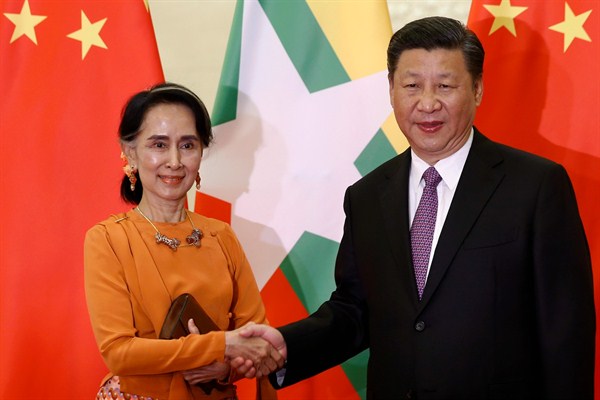HONG KONG—There are few winners from the crisis in Myanmar’s western state of Rakhine, where thousands of ethnic Rohingyas have lost their lives in an ongoing military crackdown and hundreds of thousands more have been displaced. But one exception is China, whose diplomats have skillfully exploited the turmoil to advance Beijing’s interests.
In August, the Arakan Rohingya Salvation Army, an insurgent group claiming to represent Myanmar’s Rohingya minority, attacked a series of security installations, provoking a murderous reaction from the military. Doctors Without Borders reported that at least 6,700 Rohingyas were killed in the first month of violence, while over 630,000 have since fled to neighboring Bangladesh. The bloodshed has dealt a mighty blow to the international standing of Nobel Peace laureate Aung San Suu Kyi, who led the National League for Democracy to victory in the historic elections of 2015, as her supporters have realized she is either unable or unwilling to stand up to the military, still the most powerful institution in the country, despite recent reforms. The criticism from abroad has been unrelenting.
But Chinese officials haven’t said a bad word, instead offering their support to the government in Naypyidaw. In March, before the latest escalation in Rakhine, China and Russia blocked a United Nations Security Council statement about the human rights situation there. In November, Beijing hosted Senior Gen. Min Aung Hlaing, commander in chief of Myanmar’s armed forces, and Aung San Suu Kyi, both of whom had friendly meetings with President Xi Jinping. China has even come up with a strategy of its own to deal with the crisis, calling for a cease-fire, cooperation between Bangladesh and Myanmar to repatriate the refugees, and poverty alleviation in Rakhine.

